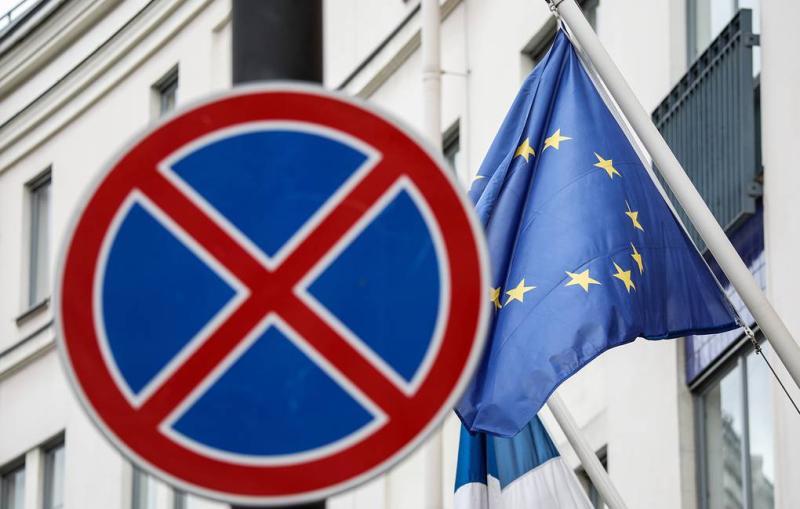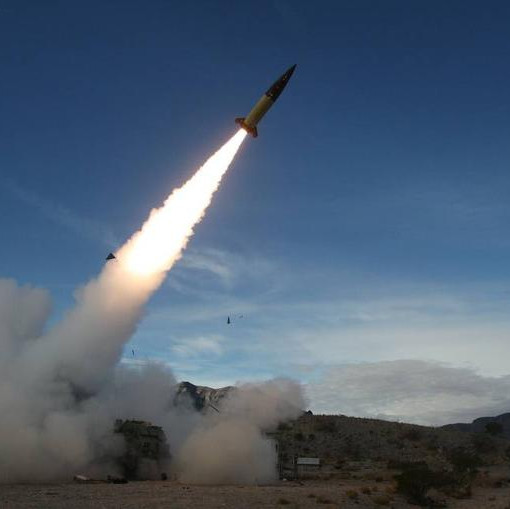
- Press review: US lets Kiev use anti-personnel mines and Iran may halt uranium enrichment
- Press review: Uranium costs soar as Moscow updates nuclear doctrine and US OKs attacks
- Press review: Russian air defenses can down Western missiles as EU conducts live exercise
- G20 leaders adopt Rio de Janeiro Summit Declaration
The EU and G7 look for a "legitimate" way to expropriate frozen Russian assets; the US is displeased with Moscow's move to recognize the Taliban; and US Secretary of State Antony Blinken goes to Moldova to throw Washington's weight behind the current leader. These stories topped Thursday's newspaper headlines across Russia, according to TASS News Agency.
Izvestia: EU, G7 looking for legal avenues to take Russian assets
EU countries and G7 states are trying to find a way to seize private frozen Russian assets in order to support Ukraine, the European Commission (EC) told Izvestia. Currently, only Canada has a law on the books allowing the confiscation of such property. That said, Brussels stresses that at this point, it is only planning on taking the profits from Russia’s sovereign assets. To this end, the EC is monitoring a law being passed in Estonia which would allow confiscating private frozen funds and then using them to help the Kiev regime. Meanwhile, experts stress that if the West decides to confiscate Russia’s assets, Moscow will have recourse to respond to this robbery.
According to Russian International Affairs Council Director General Ivan Timofeyev, the only Western country that could greenlight the expropriation of private assets any time soon is the US.
"In the UK, the subject of confiscating frozen Russian assets has stalled. Japan and the G7 countries in the EU are unlikely to make such a decision. This is just talk now. I think that among the Group of Seven countries the US is next [after Canada], given that recently they introduced a bill on confiscating sovereign assets," he told Izvestia.
The only G7 country which right now has a mechanism to confiscate private assets without the need to pay out fair compensation is Canada.
"This mechanism in Canada is being used moderately," partner at Pen & Paper Kira Vinokurova told Izvestia. "Possibly, this is related to the fact that it is still being criticized from the point of view of international law and Canada’s legislation."
If Russia’s private and sovereign assets are confiscated, Moscow would have the right to respond in kind, Vladimir Volokh, professor at the State University of Management, stressed.
"If G7 countries decide to expropriate private assets, then the president can sign a similar decree with regard to other countries, including those from the EU. And here one has to understand that a lot of foreign enterprises from unfriendly countries are still operating on our soil, and not just from the US. There are French, German and Japanese businesses here. It is enough to name such companies as Auchan, Metro Cash & Carry and JT Group, which last year were all among the top ten largest foreign companies in Russia," he told Izvestia.
Kommersant: Not everyone happy as Moscow moves to recognize Taliban
The US will not acknowledge the Taliban movement (outlawed in Russia) as Afghanistan’s legitimate authority and has warned Moscow that such recognition will send the wrong message to the world, White House National Security Council Strategic Communications Coordinator John Kirby said in Washington, commenting on a statement by Russian President Vladimir Putin that the reality is that the Taliban movement is in power in Afghanistan, so it is necessary to build relations with it. Against this backdrop, the new leadership in Kabul has remarked that the Taliban "have never been terrorists but were fighting to liberate their country from foreign occupation." Moscow’s potential recognition of the Taliban has triggered a new global discussion on how to deal with the Islamic government that replaced the pro-Western regime in Kabul.
"The Taliban, after fighting the Americans and NATO for 20 years, have learned some important political lessons. For example, if they want to be seen as Afghan patriots, even with their strong Islamic views, they need to avoid ruining relations with the rest of the world, which is wary of the idea of Islamism and political Islam," Zamir Kabulov, director of the Russian Foreign Ministry’s Second Asian Department, pointed out.
"It seems to me that they have evolved. While fighting for power in Afghanistan, the Taliban have transformed into an Islamic national liberation movement with an agenda focused solely on Afghanistan. The Taliban made it clear that they are not part of the global jihad which threatens both India and Russia," Kabulov told TASS.
What’s more, Arab representatives participated in the "Russia-Islamic World: KazanForum" international economic event in Russia’s Tatarstan Region and are getting ready to take part in the St. Petersburg International Economic Forum (SPIEF) on June 5-8.
"Representatives of the current Afghan authorities, with whom Russia, much like the majority of other countries, is developing mutually beneficial political and economic ties, have indeed been invited to the 27th St. Petersburg International Economic Forum. The program for the Afghan delegation to Russia, including meetings on the forum’s ‘sidelines,’ is being shaped," the Russian Foreign Ministry said on Wednesday, replying to a question about the Taliban’s participation in SPIEF.
Media: Blinken arrives in Chisinau to throw weight behind Moldovan president
On his way to an informal meeting of NATO ministers of foreign affairs, US Secretary of State Antony Blinken stopped over in Moldova to meet with President Maia Sandu. Earlier, the US Department of State said that it is preparing an aid package for Chisinau. However, experts believe that the main reason for the visit was to discuss the upcoming presidential election in Moldova, which Sandu is limping into with poor ratings. Washington wants to preserve its complete influence on Chisinau because amid Ukrainian failures and a rift in relations with Georgia, Moldova is the last outpost for the implementation of an anti-Russian policy course in the post-Soviet space.
"As we see, the Americans are banking on Maia Sandu being re-elected. In the run-up to the election, I do not expect any serious escalations in Moldova. But afterwards, it could be a different story, either an escalation with Transnistria or with Gagauzia. This escalation will likely be related to the streamlined Eurointegration processes, which could disintegrate Moldova’s statehood. Currently, during the visit, most likely, technical issues are being discussed," political scientist Malek Dudakov told Izvestia.
Blinken’s visit, apparently, is meant to express solidarity with Moldova’s current leadership, which may help Sandu’s electoral ambitions, Dmitry Ofitserov-Belsky, senior researcher at the Russian Academy of Sciences’ Institute of World Economy and International Relations (IMEMO RAS), told Izvestia.
"Currently, Sandu is going through a tough time: she has accumulated an enormous negative rating and her actual support among the population is 20-25%. Apparently, both her administration and the State Department think that such visits [by Blinken to Chisinau] may give a boost to her ratings. Indeed, she will be praised because Moldova is moving in the right direction, that it is developing democracy. However, this is far from the truth," the expert noted.
"Nezavisimaya gazeta" pointed out that Igor Shornikov, Transnistria’s ex-foreign minister and director of Tiraspol’s Institute for Social and Political Studies and Regional Development, said in an interview with media that in the event Sandu wins the election and the European referendum succeeds, Moldova will immediately reject its constitutional neutrality and fall back into a conflict with Russia by way of escalating tensions with Transnistria. "The other scenario is Sandu’s loss and the failure of the European referendum. Then it is quite possible to expect a pro-European maidan in Chisinau launching the processes of a forced unification with Romania," he noted.
Izvestia: What Cuba gains from rapprochement with US
Cuban entrepreneurs have been granted the right to open accounts at US banks and use US financial online services. The Department of the Treasury has also opened access to some social networks, videoconference programs, information storage systems, online translators, games and maps. The relaxed restrictions should help small and medium-sized businesses in Cuba grow, those not related to the military, government or the Communist party. Experts polled say that Washington’s actions are merely a political ploy in the run-up to the presidential election this November.
While Cuba has been taken off one list, the country remains on the list of the countries sponsoring terrorism, alongside Iran, Syria and North Korea.
"It is precisely this list which determines restrictions introduced automatically for those companies that would like to cooperate with Cuba but cannot, due to the threat of US sanctions. The US decision is a small step toward excluding Cuba from the list of terrorism-sponsoring countries, but it is not enough," Nikolay Kalashnikov of the Institute of Latin America of the Russian Academy of Sciences told Izvestia.
The expert community believes that the US’ attempts to improve ties with Cuba are directly related to the upcoming election in the United States.
"Above all, the US’ actions must be viewed through the lens of trying to win over Latin American and Cuban voters. The Cuban diaspora in the US is rather large and is steadily growing," said Lev Sokolshchik, researcher at the Center for Comprehensive European and International Studies.
Additionally, the US in general may be concerned over anticipated changes in the region.
"Lately, such players as China and Russia have become more active in the Latin American region and are gradually overtaking the regional agenda from the US," Sokolshchik opined.
Kommersant: Russian grain prices spike
Wheat harvest forecasts, revised due to poor weather and expectations of rising dollar inflation, have stimulated a growth in prices on export markets. Over the last week, the cost of Russian grain has grown by almost 4%, with prices for the new harvest surpassing those of the old. Prices are being stoked by hedge funds while many actual buyers are taking a pause. Also adding to the price growth is Russia’s anticipated entry into the Indian market, even though the volume of purchases is unlikely to be substantial.
According to Dmitry Rylko, director general of the Institute for Agricultural Market Studies, the prices are growing only for grain producers. Yet only those exporters who are tied by short-term delivery contracts are ready to conclude any deals now.
The expert thinks that the majority of buyers are biding their time. General tendencies for them right now are quite contradictory because ending inventories in Russia are rather substantial and a good harvest is expected in Ukraine, Romania and Bulgaria.
TASS is not responsible for the material quoted in these press reviews









